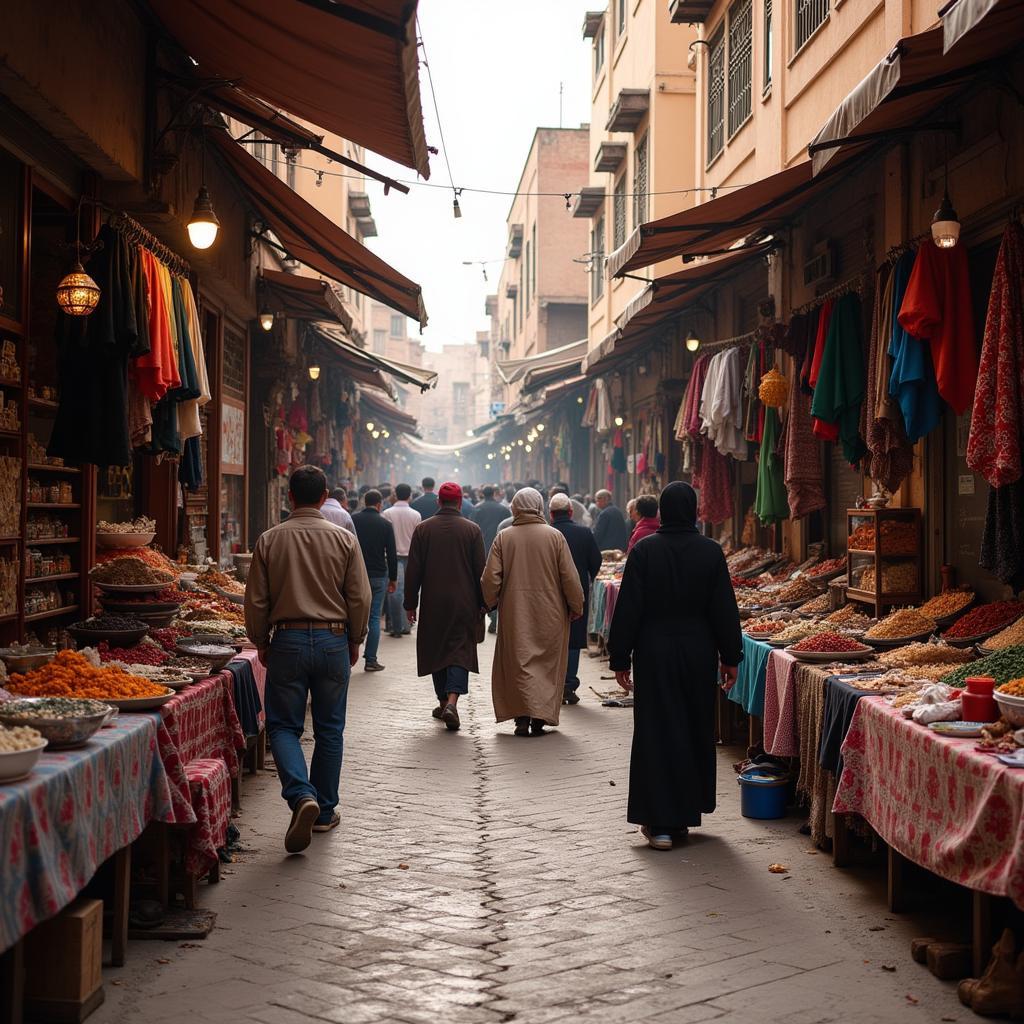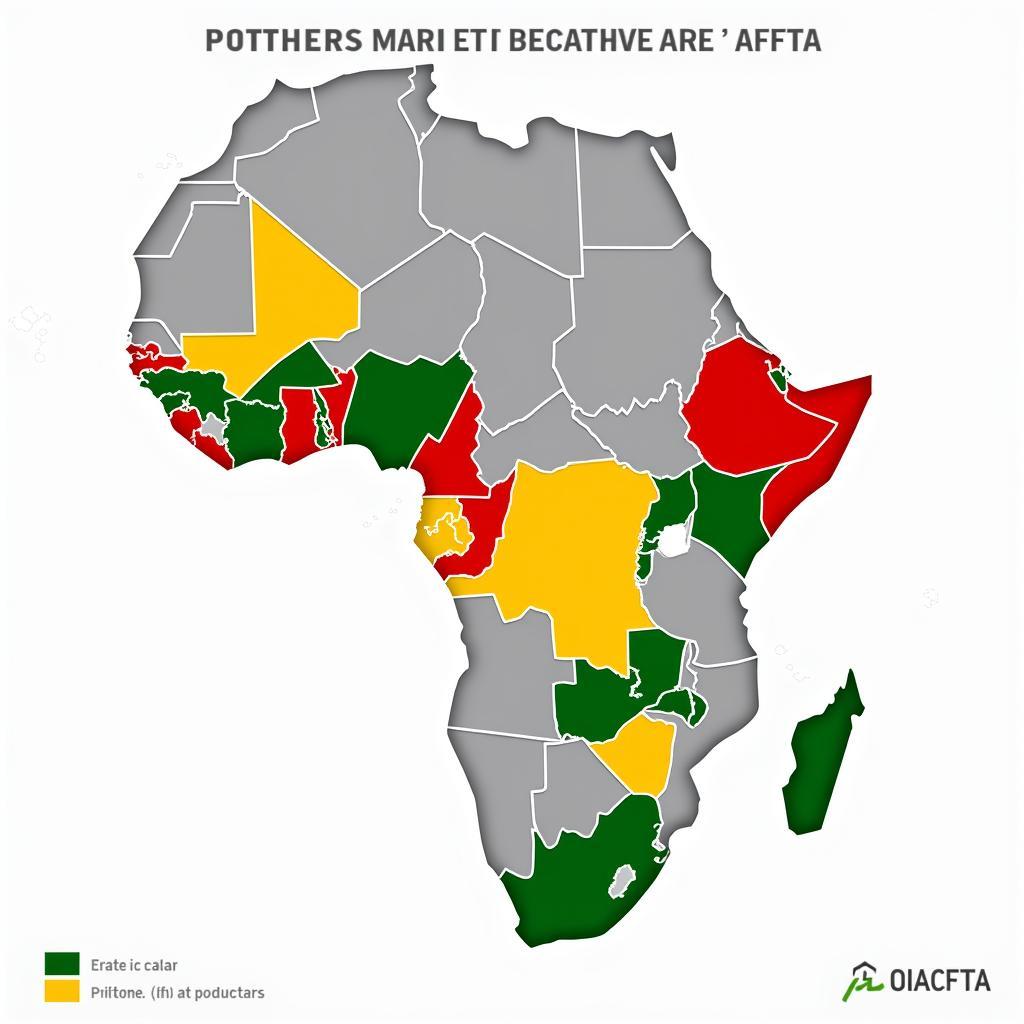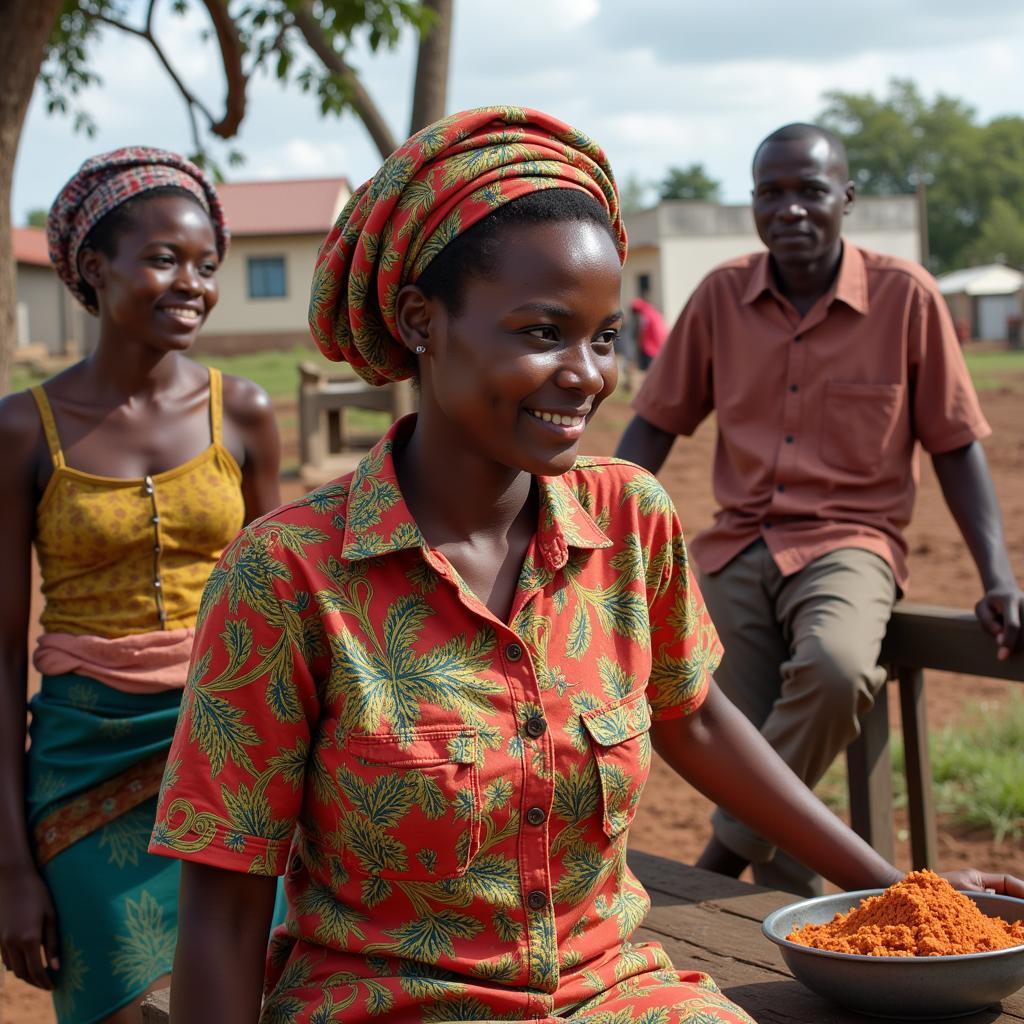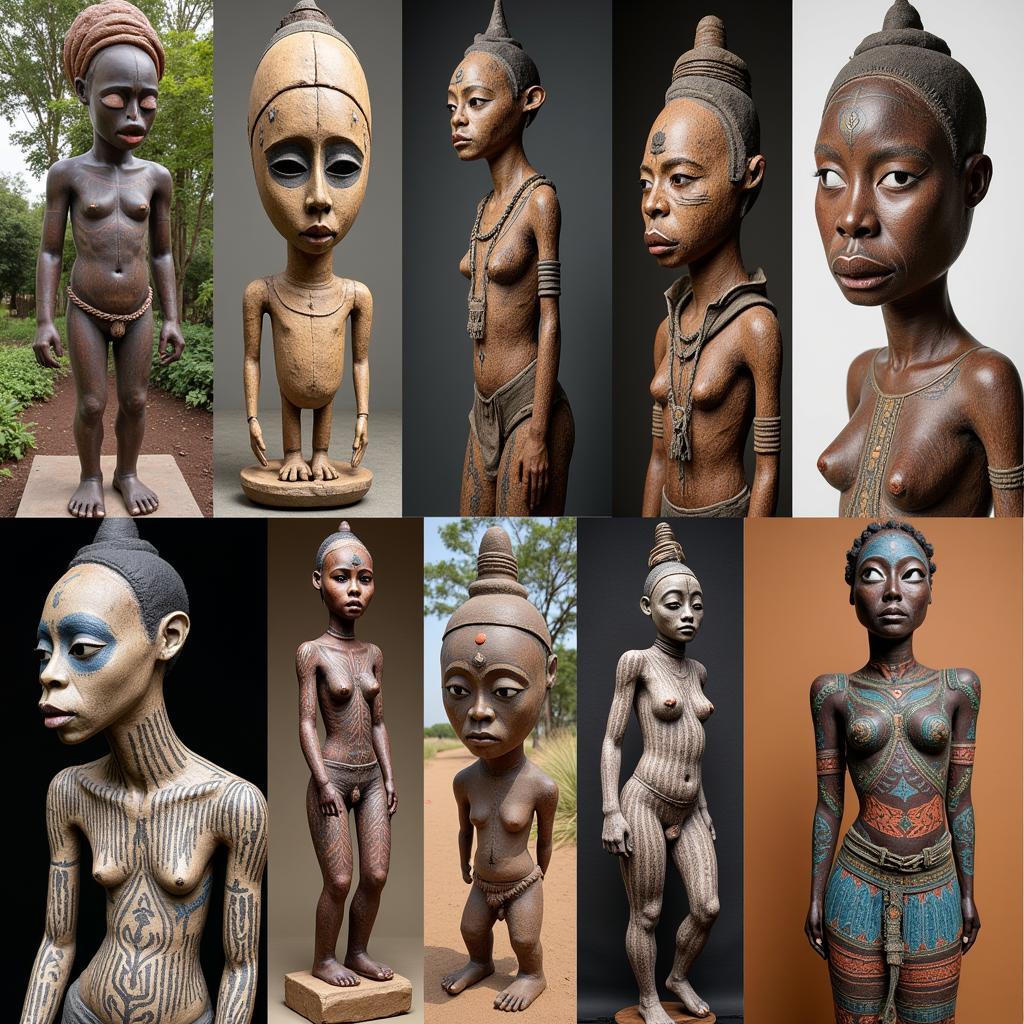Exploring the Rich Tapestry of North African People
North African People represent a vibrant mosaic of cultures, histories, and traditions. From the bustling souks of Marrakech to the ancient ruins of Carthage, North Africa offers a captivating glimpse into a world shaped by the convergence of Berber, Arab, and other influences. This article delves into the diverse aspects of North African life, exploring the people, their heritage, and their enduring connection to this remarkable region.
Unveiling the History of North African People
North Africa’s history is a fascinating narrative woven through centuries of conquests, migrations, and cultural exchanges. The indigenous Berber populations have inhabited the region for millennia, their presence predating recorded history. Later, the arrival of Arabs in the 7th century CE significantly impacted the region’s linguistic and religious landscape, introducing Islam and the Arabic language. The subsequent rise and fall of empires, including the Carthaginians, Romans, Ottomans, and French, have all left their indelible mark on the region. african kingdoms before slavery provides a deeper understanding of the rich history of the region before the transatlantic slave trade.
The interplay of these diverse historical influences has shaped the identity of North African people, creating a unique blend of traditions and customs. From the intricate architecture of ancient mosques and Roman ruins to the vibrant rhythms of traditional music and dance, North Africa’s rich past continues to resonate in the present.
What are the key historical events that have shaped North African identity? The Arab conquests, the spread of Islam, and the era of European colonization are just a few of the defining moments that have contributed to the complex tapestry of North African history.
The Cultural Mosaic of North Africa
North African culture is characterized by its rich diversity, reflecting the region’s complex history and the varied influences that have shaped it. Islam plays a central role in the lives of many North Africans, influencing social customs, artistic expression, and daily routines.
Traditional music and dance, often deeply rooted in Berber and Arab traditions, play a vital role in cultural celebrations and social gatherings. The vibrant rhythms and melodies of North African music reflect the region’s diverse cultural heritage. Similarly, traditional crafts, such as weaving, pottery, and jewelry making, continue to be practiced, showcasing the artistic skills and creativity of North African artisans. african folk art embroidery explores different forms of artistic expression from the continent.
Dr. Fatima El-Khatib, a renowned anthropologist specializing in North African cultures, notes, “The cultural richness of North Africa lies in its ability to blend ancient traditions with contemporary influences, creating a dynamic and ever-evolving cultural landscape.”
The Diverse Languages of North African People
Arabic serves as the official language in most North African countries. However, a variety of other languages and dialects are spoken across the region, reflecting its linguistic diversity. Berber languages, also known as Amazigh languages, are spoken by significant populations in countries like Morocco, Algeria, and Tunisia. These languages represent the enduring legacy of the Berber people, the indigenous inhabitants of North Africa.
Beyond Arabic and Berber, other languages, such as French, are also spoken in some North African countries, a legacy of the region’s colonial past. This linguistic diversity adds another layer to the rich tapestry of North African culture.
Professor Omar Ben Salah, a linguist specializing in North African languages, states, “The linguistic landscape of North Africa is a testament to the region’s rich history and the continuous interaction between different cultures and languages.”
 North African Markets as Hubs of Cultural Exchange
North African Markets as Hubs of Cultural Exchange
Conclusion: A Journey Through North African Cultures
North African people, with their rich history, diverse cultures, and vibrant traditions, represent a captivating corner of the world. From the ancient ruins of civilizations past to the bustling marketplaces of the present, North Africa offers a unique journey of discovery. Exploring the intricacies of North African Life reveals a tapestry woven from the threads of Berber, Arab, and other influences. As we continue to learn more about the North African people, we gain a deeper appreciation for the rich cultural heritage that shapes this fascinating region. african desert belt offers more insights into the geographical and cultural landscapes of the region.
FAQ
- What are the main ethnic groups in North Africa?
- What is the role of Islam in North African culture?
- What are some popular North African dishes?
- What are the major languages spoken in North Africa?
- What are some important historical sites in North Africa?
- What are some of the challenges facing North African countries today?
- How has colonialism impacted North African societies?
Further Exploration
You might also be interested in these related topics: african fair women pic and african jesus.
Contact Us
For further assistance, please contact us at: Phone: +255768904061, Email: kaka.mag@gmail.com or visit our office at Mbarali DC Mawindi, Kangaga, Tanzania. Our customer service team is available 24/7.



